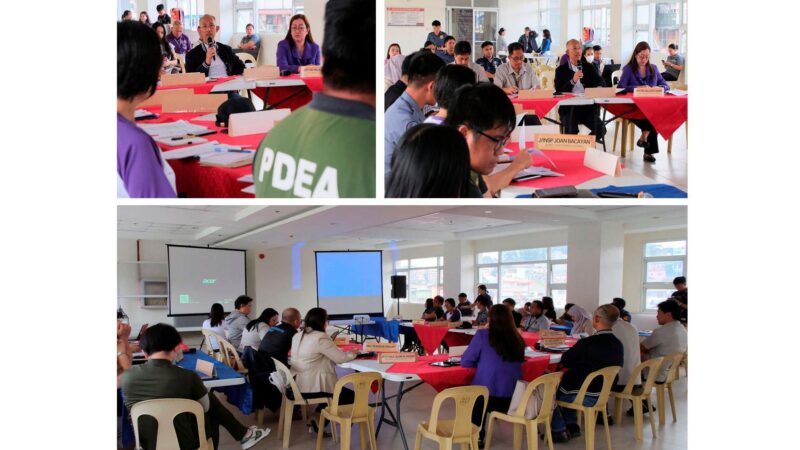Cardinal Santos debunks common misconceptions about cervical cancer

We mostly remember the month of May for Mother’s Day, but did you know that May is also Cervical Cancer Awareness Month? Cervical cancer has long been recorded as one of the most prevalent cancers in the Philippines. In fact, it ranks third overall and is the second most prevalent among Filipino women.
For this reason, Cardinal Santos Medical Center is strongly pushing to dismantle social stigmas surrounding women’s reproductive health, generate more open conversations about cervical cancer and its causes and encourage screening and vaccinations against it.
“Majority of cervical cancer cases are caused by the human papillomavirus, more commonly known as HPV, which can be contracted through sexual contact,” said Dr. Christine Joy Garcia, a gynecologic oncologist at Cardinal Santos. “There have been some studies, however, that show a small percentage of cases were not directly influenced by HPV.”
While Garcia notes that this claim still needs further research, she stresses the importance of emphasizing it, as it may help break down discrimination against women who may come to develop precancerous lesions of the cervix. “When people think of cervical cancer, there’s a misconception of, ‘this woman must be promiscuous’, when that may not be the case. This creates a culture of shame and puts up barriers against the prevention of cervical cancer. We need to change that.”
Nonetheless, a large number of cases are still HPV-related, which is why Garcia strongly recommends regular screening and getting vaccinated against HPV, especially for women who are sexually active. “Once a woman becomes sexually active, there will always be a risk of catching the virus,” Garcia said. “The best prevention, therefore, is to practice protected sex and to get the HPV vaccine.”
Even men can receive the vaccine, too. “Men don’t have cervixes, but the virus can survive on their genitals, too. Contrary to what some people might think, men can develop certain cancers because of HPV, and there’s an added risk of becoming a carrier for the virus through previous sexual contacts,” she explained. “For men, getting the vaccine lessens the risk of harming both themselves and the woman they are currently with.”
Aside from HPV, certain factors like taking oral contraceptive pills for more than 5 years or smoking also increase the risk of developing cervical cancer. “They don’t cause cervical cancer per se,” said Garcia, “but if the virus is already in the cervix, these factors weaken the immune system and make it difficult for the body to fight the virus off.”
HPV vaccines can be given as early as 9 years old while testing and pap smears are recommended to be done starting at the age of 25. “Precancerous lesions and the very early stage of cervical cancer usually do not have any symptoms, and are only caught incidentally through testing,” Garcia noted. “That is why it is important to get regular screening done, to increase the chances of catching these developments, which are easier to treat than when the patient is already in the later stages of cancer.”
Cardinal Santos is also equipped to deal with cervical cancer itself. Certain treatments, such as colposcopy, which helps doctors confirm if any abnormalities seen during screening are cancerous or not, conization for high-level precancerous disease, and cryotherapy for lower-level precancerous disease, are available at Cardinal Santos through the hospital’s Comprehensive Women’s Care Unit.
“Every woman has the right to protect herself. Transparency and open communication is very important and as doctors, we must ensure that our patients feel safe and that they won’t be judged, so that they can give us the information we need to safeguard their health, treat them, and protect them,” concluded Garcia. ### (PR)
For more information about the programs and services that CSMC offers, please visit https://cardinalsantos.com.ph/. CSMC is also on Facebook, like and follow them at www.facebook.com/CardinalSantos.
ABOUT CARDINAL SANTOS MEDICAL CENTER
Cardinal Santos Medical Center (CSMC) is a 287-bed private tertiary hospital located in West Greenhills, San Juan City. The hospital is known for its pioneering and world-class services in the fields of Cardiology, Oncology, Neurosurgery, Gastroenterology, Rehabilitation Medicine, Sports Medicine, and Minimally Invasive Surgery. CSMC boasts of some of the most respected medical professionals today with expertise in a variety of specialties, ensuring that patients can access the healthcare that they need and deserve. With a commitment to clinical excellence and a dedication to compassionate care, CSMC is one of the most sought-after medical institutions in the country today.







